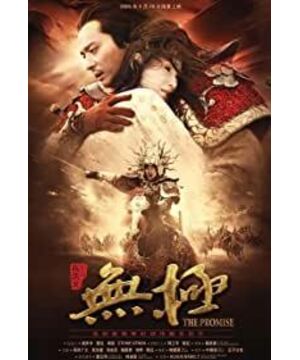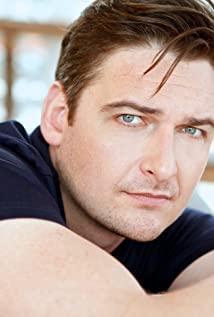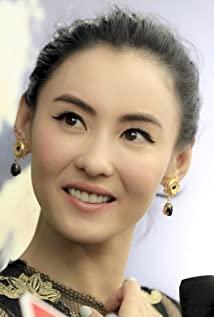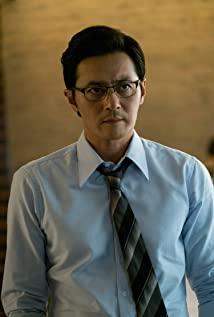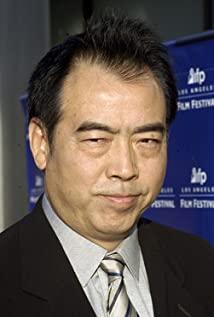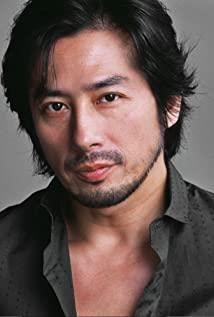Over the years, I have listened to the words of "Promise" and even Director Chen countless times. Not much nonsense.
It has always been said that writing a film review takes 14 years. It took me 14 years to figure out why people curse "Wuji".
When people see some phenomena that go against common sense in life, they will instinctively feel disgusted or even suspicious, and these preconceived impressions will lead to prejudice. And the film "Promise" just doesn't take care of people's common sense at all. It uses exaggerated symbolic hints and symbolic descriptions from beginning to end, the language is sometimes popular and the other is poetry, and the two main characters are even dubbed by foreign actors, which is obscure and uncomfortable.
So let's start with the dialect accent.
Jingqiang
At the beginning of the chapter, the girl Qingcheng was looking for food among the dead, and was caught by the trap of the young man Wuhuan. We know that the adult Wuhuan is played by the handsome and popular Hong Kong and Taiwan niche student Nicholas Tse. It can be said that he is responsible for the appearance of the whole play. But the young man Wuhuan looks rustic, and he speaks a Beijing dialect. There should be a lot of people here.
Beijing dialect, or to be more precise, Mandarin with a Beijing accent actually appears several times in the film. The other times, one was the barbarian leader in the battle of the canyon, and the other was the black-robed assassin Guilang played by Liu Ye. Ghost Wolf is from the Snow Country, and must be from the North. So who is Wuhuan? The Duke of the North, Wuhuan, should speak the northern dialect. Therefore, it can be interpreted as: using the Beijing accent to represent and imply the origin of the other party. So the barbarians should also be northerners.
"Alien" blunt accent
Here "foreign people" are in quotation marks, referring to actors Jang Dong-gun (South Korea) and Sanada Hiroyuki (Japan). In the play, Kunlun played by Jang Dong Gun has a blunt accent for a reason: he was kidnapped by human traffickers since he was a child and became a slave of the lowest order. He can't even stand, and he has no chance to learn or speak.
You know, if Guangming is not such a blunt foreign accent, then Kunlun's pretending to be Guangming would be easily exposed. Although Guangming warned him not to speak, he still said to Qingcheng "Don't die, live well." This sentence itself is also the key to the plot, and finally leads to the story of Kunlun and Qingcheng's reconciliation, so it is an unavoidable detail. How can people not recognize the wise general and the inarticulate slave Guangming? Except for the mask and armor, it's probably that idiot-like accent.
Why does Hiroyuki Sanada also have a hard accent? The reason is not explained in the movie, but judging from the fact that after killing the king, his subordinates immediately betrayed or even betrayed him repeatedly, the position of the bright general is not very stable. This is unreasonable, because the general Guangming in the play is a character who is always victorious and frightened by all opponents. There is no reason why such a person should not be heartily loved by his subordinates. Therefore, what is not stated here is that the general Guangming is also a foreigner. After losing the aura of the position given by the king, his subordinates immediately became detached.
Demon Concubine and Girl
There are two accents in Qingcheng, which are easy to distinguish: Yaofei's accent and a girl's accent. The demon concubine uses the accent and scheming everywhere; the girl's accent will show the sincerity of Qingcheng. This may have to be seen together with the makeup: the makeup of the concubine is mainly pink, highlighting the lips and eyes, which represents the scheming; the girl's makeup is simple water noodles + nude makeup, which represents the sincerity.
Wangcheng: Demon Concubine's Voice + Demon Concubine Makeup, Pink Clothes Amplify the Effect (The scheming of the court)
Waterfall: Demon Concubine Voice + Demon Concubine Makeup (Warning)
No Huan Golden Birdcage: Girly Voice + Girly Makeup (The changes here are a bit subtle, and I will talk about it later in "Character >> Allure")
Caolu (1): (During the day) The makeup of the girls here is a little pale (longing for love and having doubts)
Thatched Cottage (1): (at night) girly voice + girly makeup (sincerely planted the seeds of love)
Leaving the Horse + Encounter with Begonia Flowers: Simplified version of Yaofei's accent + simplified version of Yaofei's makeup (the routine is bright, testing true love)
Cao Lu (2): girly voice + girly makeup
*There is always a girly voice + girly makeup in the golden bird cage without joy
Public Trial Guangming: Yao Feiqiang + Girl Makeup
Duel under the Begonia Flower: Girly Voice + Girly Makeup
other
In addition to the above three, accent hints also include "changes in accents after Wuhuan's adulthood". This change is too subtle and complicated, and will be explained in detail in "Character >> Wuhuan" later.
"The Promise" film review:
1. The symbolism of accents
2. Characters>>Allure
3. Characters>>Bright and full of gods
View more about Wu ji reviews


